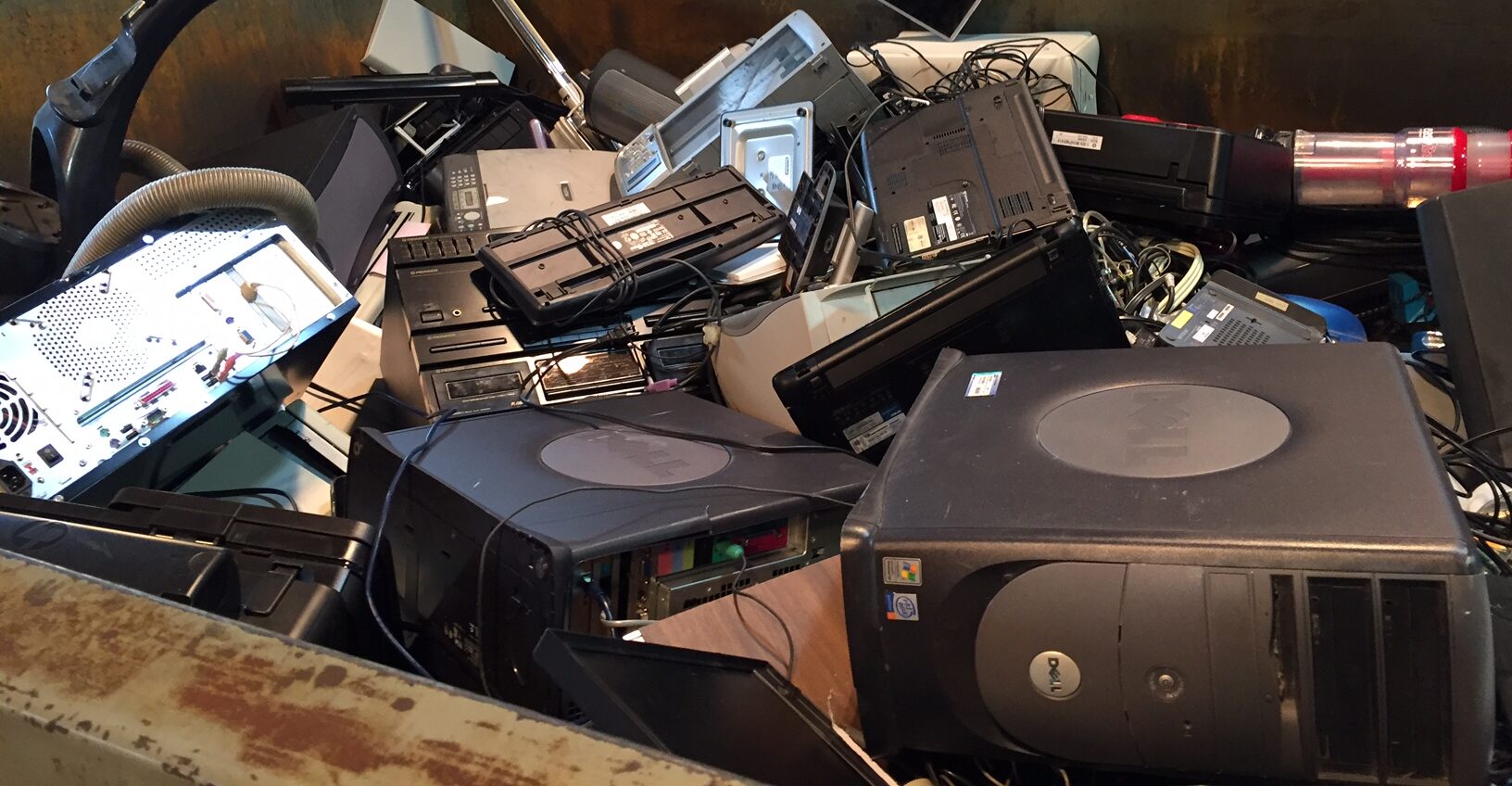Recycling event a success

This year, the medical center was fortunate to have its annual recycling event during Earth Month as usual, in partnership with the University of Nebraska at Omaha.
Over the course of the two-day event in April, materials received included:
- 471 lbs. of assorted media (VHS tapes, DVDs, CDs and floppy disks);
- 7,466 lbs. of electronic waste;
- 3,910 lbs. of paper for shredding;
- 190 lbs. of alkaline batteries (approximately 2,500 batteries); and
- 3.5 lbs. of rechargeable/button batteries
That’s 12,040 total pounds diverted from the landfill. That impact equates to approximately:
- 31 trees saved
- 163 gallons of oil not used
- 367,212 hours of electricity saved
- 4,971 gallons of water conserved
Also donated:
- $800 and a carload of food to the Maverick Food Pantry;
- A blue recycling bin full of eyeglasses to the Truhlsen Eye Clinic; and
- Three boxes of pop tabs to Ronald McDonald House.
Event organizers offered a “thank you” to volunteers Mithla Albulushi, Marion Entz-Harris, Helga Fensterman, Sarah Fleenor, Elizabeth Hill, Sushma Kolumban, Jessica Macossay, SarahMcLain, Leracha Simon, Lacy Snyder and Jennifer Wemhoff.
This year’s collected waste was about half the amount collected last year, when nearly 29,000 lbs. of material for recycling was collected. That’s not bad news, though — during the first few months of the pandemic, lots of people cleaned out their houses, which meant they were looking for ways to responsibly dispose of materials in 2020. This year, plenty of materials still were diverted from the landfill.
Alongside proper disposal of items like the ones collected in April, there is more that everyone can do to reduce waste with regard to paper and technology. To reduce environmental impact and save money, do some research before buying products to see how long the product will last. Consider spending more for something that will last longer.
Other ways to reduce waste include printing less, unsubscribing from mailing lists and upgrading to rechargeable batteries. Reducing waste is a crucial first step, while recycling is an important last step, for ensuring waste is disposed of responsibly.
